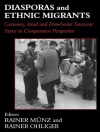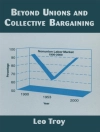This is a pathbreaking comparative and trans-national study of the neglected influences of nation, empire and race upon the development and electoral fortunes of the Labour Party in Britain and the Australian Labor Party from their formative years of the 1900s to the elections of 2010. Based upon extensive primary and secondary source-based research in Britain and Australia over several years, it makes a new and original contribution to the fields of labour, imperial and ‘British world’ history. The book offers the challenging conclusion that the forces of nation, empire and race exerted much greater influence upon Labour politics in both countries than suggested by ‘traditionalists’ and ‘revisionists’ alike. The book will appeal to undergraduates, postgraduates, scholars in history and politics and all those interested in and concerned with the past, present and future of Labour politics in Britain, Australia and more generally.
Cuprins
Acknowledgements List of abbreviations Part I: Setting the scene 1. Subject matter, debates and issues 2. Labour and elections Part II: The growth of independent Labour 3. Chronology, constituencies, impact 4. Explanations and characteristics Part III: The politics of loyalism 5. Anti-Socialism and the tarring of Labour 6. Labour responses and political outcomes Part IV: Mixed fortunes: From the 1940s World War to the 1970s class war 7. Labour successes: the 1940s 8. Out in the cold 9. Transnational ties, electoral successes and bitter defeats Part V: Traditionalism, modernisation and revisionism 10. Successes and failures 11. From Hawke and Keating to the rise of New Labour, 1983-1997 12. From Howard to Gillard, from Blair to Brown, 1997-2010 Conclusion Index
Despre autor
Neville Kirk is Emeritus Professor of Labour and Social History at Manchester Metropolitan University












